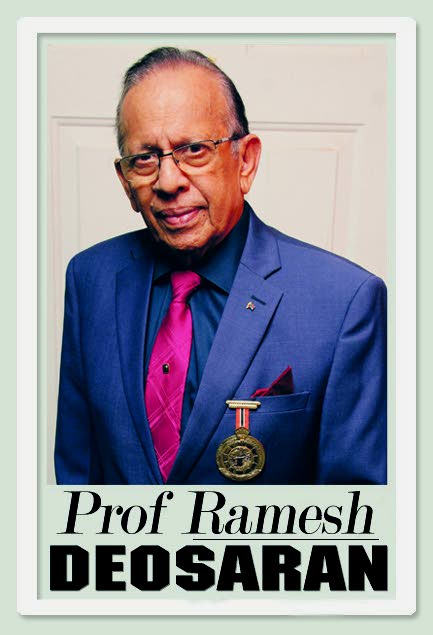Sad voices cry for healing

A few letters published last week really bothered me. They all sounded like painful distress calls, pleading for peace, safety, unity, and the country’s betterment. They also invoked the sacred principle of a healthy democracy: parliamentarians must listen to the people. Are ours listening? These pleading voices – high or low – must be respected.
Modicia Martin regretfully wrote: “I am saddened and fed up to see what our country has become – a place with no justice and no mercy for the people.” Giving a commonsense view, she sorrowfully added: “Crime affects everybody, but because we are so divided we prefer to stay quiet, because some of us are PNM, some UNC, some Catholic, and some Pentecostal so we don’t want to offend anybody…Since there is no unity, nothing will change.”
Now, it isn’t that people are staying quiet. As the letters illustrate last week and even before, citizens of all types are bawling down the place over crime, food prices, public services, corruption, social injustice, political disunity, etc.
All this didn’t start yesterday, but our authorities have this bad habit of waiting until there is a crisis.
It isn’t also that the politicians don’t hear. They just don’t listen carefully, and even if they do, as everybody knows, they can do nothing but rely on fixed, caged supporters.
As for “political disunity,” well, the Constitution permits it with a Government vs. Opposition provision, a reputed democratic principle. The challenge for constitution reform is how to sustain this principle and yet promote the “political unity” in essentials as so many citizens are calling for.
Citizen Marlon Bascombe wrote: “I wonder what it will take for us citizens to lift ourselves from the morass of our current circumstances.” Well, an early way is for citizens to courageously condemn any wrongdoing and misconduct within the party they support and help ensure their party – big or small – function honorably and choose election candidates who possess political credibility (trustworthy) and integrity (e.g., moral uprightness, honesty). This will help pull us out “the morass.”
Raise your public voice or tell your party to avoid Machiavellian opportunists and super-egoists (very self-centered) who obviously seem more interested in their own personal fortunes rather than public service. This country has suffered too much, too often, and too long from this political blight. Don’t stay quiet. And don’t let political desperation create self-destruction.
The lively Arnold Gopeesingh wrote: “I believe we have people with selfish political ambitions whose hearts and souls are focused on being in charge and fulfilling a dream more than genuinely serving the people and country.” But who is listening?
Now hear Hafeez Amin’s troubling complaints about “on-the-ground” misconduct. He wrote: “As a taxpaying citizen for more than 40 years, I am totally fed up with what we get for our money. Nowhere in Trinidad can we go somewhere to relax with our family without some idiots breaking the peace…We go to Maracas for a day but first we must run the gauntlet of beach chair renters who accost you…they have already set up their chairs in the best spots.” He asked: “Why do we have to put up with this when we have elected authorities? If we are not careful we will slip even further into the morass.” But who is listening?
And then here is Lennox Francis, once again pleading for public safety and an improved TTPS. He stated: “The State is at its wits’ end to prop up an institution that has headaches at the top and flaccidity at its lower limbs…If the pillars of a building have lost their integrity…allow the TTPS to peter out or disband it.” He continued: “Introduce a new institution with higher entry-level qualifications, new standards to ensure unwavering honesty and commitment. Buried in the archives to save the day is the use of a police inspectorate.” So citizens are not quiet. But who is listening?
With the frightening Valsayn “horror house” story, it is notable how many times neighbors and relatives said they called the police, but without getting any positive response. Such complaints, unfortunately, have grown too common.
But rather than remaining quiet, and to help remedy this, the Police Manpower Audit Report had an appendix with a developed system to improve police front-desk efficiency in responding as well as building public satisfaction and confidence in the police. Don’t wait on a crisis. But who is listening to these sad voices?

Comments
"Sad voices cry for healing"